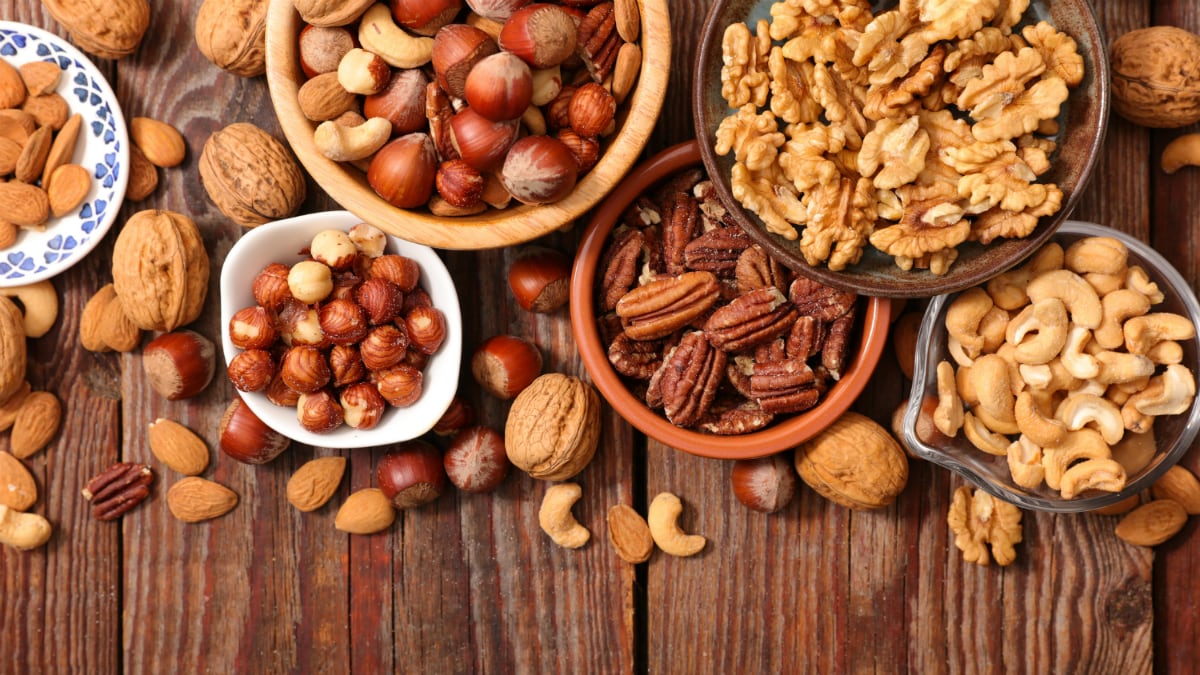Globally, the proportion of adults aged above 60 years is expected to reach 20% by 2050. As ageing is linked to certain physiological changes that increase the risk of malnutrition, this problem is likely to be more common in the near future.
Malnutrition is characterised by insufficiencies and deficiencies of micro- and macronutrients, and negatively affects overall health, well-being and quality of life in older adults.
Because nuts are rich in protein, energy, unsaturated fats, and other nutrients that offer a range of health benefits, their effects on over-nutrition have been studied extensively. However, very little research has been conducted to assess the potential of nuts in countering under-nutrition in seniors.
Based on this, researchers at Australia's Deakin University and New Zealand's University of Otago conducted a review to investigate the potential role of nuts in improving the nutritional status of older adults who were at risk of under-nutrition.
Nuts about nutrition
One way to prevent and reverse under-nutrition, the researchers wrote, was to increase energy and nutrient density through food processing and fortification. Alternatively, older adults could consume more foods that are natural high in energy, nuts being one example.
In addition to their high energy content (approximately 28kJ/kg or 7kcal/g), nuts are also rich in micronutrients, and the unique nutrient profiles of nuts have been found to benefit older adults, due to their protective effects against metabolic diseases and support of vascular and mental health.
They contain high amounts of cis-unsaturated fatty acids and fibre, and individual nut types provide beneficial amounts of folate, vitamin E, calcium, copper, iron, magnesium, phosphorus, potassium and zinc.
Nuts are also a good source of protein, which can aid in the preservation of lean mass and motor function in older adults.
Nuts, incorporated
However, one challenge the researchers noted was that because nuts take a longer time to chew and therefore digest, this would — together with their energy-dense nature — cause those consuming them to feel full faster, leading to lower overall consumption of food and further compounding the issue of under-nutrition.
In addition, the nutrients in nuts are not readily accessible to humans as their unsaturated fats are typically encapsulated in thick cell walls, limiting their availability.
To tackle these issues, older adults suffering from under-nutrition are advised to consume different nut forms, such as nut butter and nut oil. The researchers also suggested a variety of nuts for consumption due to sensory-specific satiety, which is induced by dietary monotony and often results in non-compliance to dietary supplements.
They wrote: "Sensory-specific satiety describes a condition where the repeated consumption of a same food due to limited choices leads to a decrease in liking that food, and subsequently reduces food intake.
"This is a considerable problem, especially among older adults at risk for under-nutrition. Research in the area of sensory-specific satiety suggests that increasing the variety of foods may reverse this condition."
Another issue is timing. Nuts tend to be filling, and as such, should be consumed as snacks and not with meals, as the resulting satiety may lead to lower intake of other foods, which is detrimental to older adults who are under-nourished.
What to do, what nut to do
The researchers identified several areas to be addressed in future studies to better comprehend how nuts can prevent and reverse malnutrition among seniors at risk of under-nutrition, one of which was to conduct RCTs to determine the underlying mechanisms and potential role of nuts for this purpose.
Secondly, future research should "measure the acceptability of nuts in elderly who are at risk of under-nutrition. A variety of nuts can be used to prevent sensory-specific satiety and promote nut intake".
The timing and frequency of nut consumption by the elderly should also be investigated so as to determine the ideal time for nut intake, as well as the best way to incorporate nuts into the diet without displacing the consumption of other essential foods.
Lastly, the researchers recommended assessing if the health effects observed with raw nut consumption could be generalised to nuts in different physical forms or preparation methods, and also determining the type and dose of nuts needed to benefit seniors at risk of under-nutrition.
They concluded: "Several properties of whole nuts, some of which appear important for addressing over-nutrition, (e.g., hardness, lower-than-expected nutrient availability, satiety-enhancing effects) may limit their effectiveness as a food to combat undernutrition.
"However, we propose that modifications such as transforming the physical form of nuts, addressing the timing of nut ingestion, and introducing variety may overcome these barriers.
This review also discusses the feasibility of using nuts to prevent and reverse undernutrition among older adults. We conclude with a recommendation to conduct clinical studies in the future to test this conceptual framework."
Source: Nutrients
https://doi.org/10.3390/nu10101448
"Can Nuts Mitigate Malnutrition in Older Adults? A Conceptual Framework"
Authors: Sze-Yen Tan, et al.

